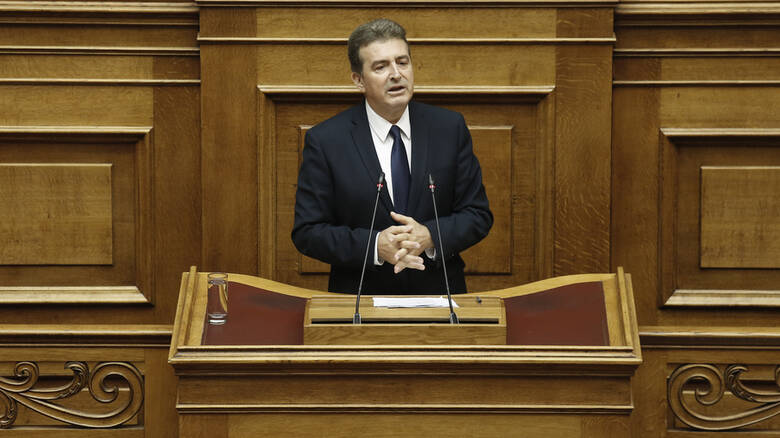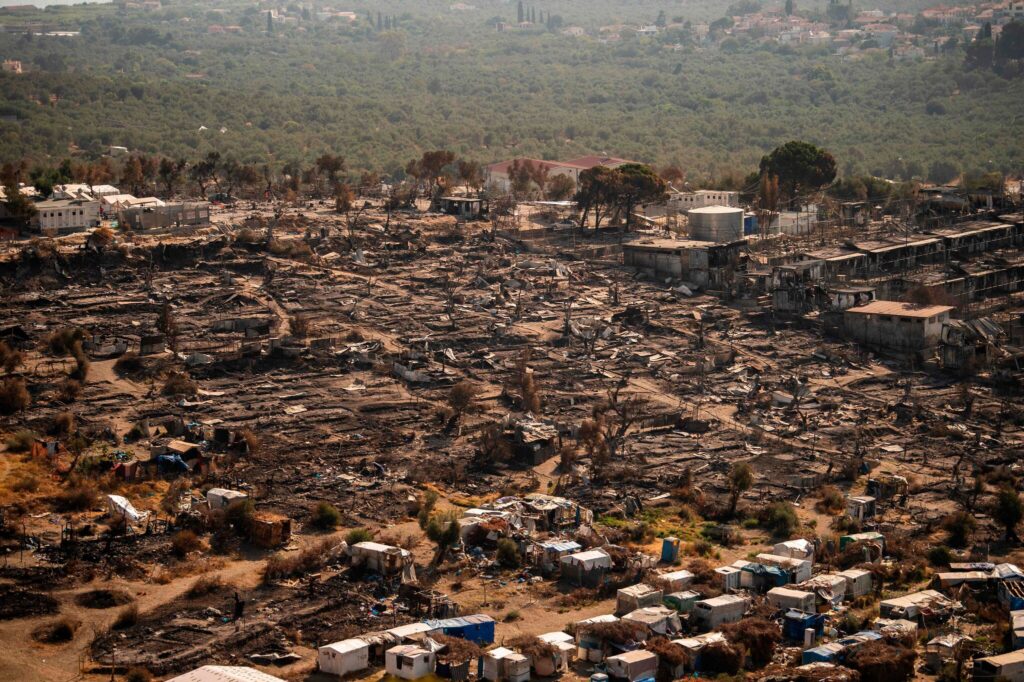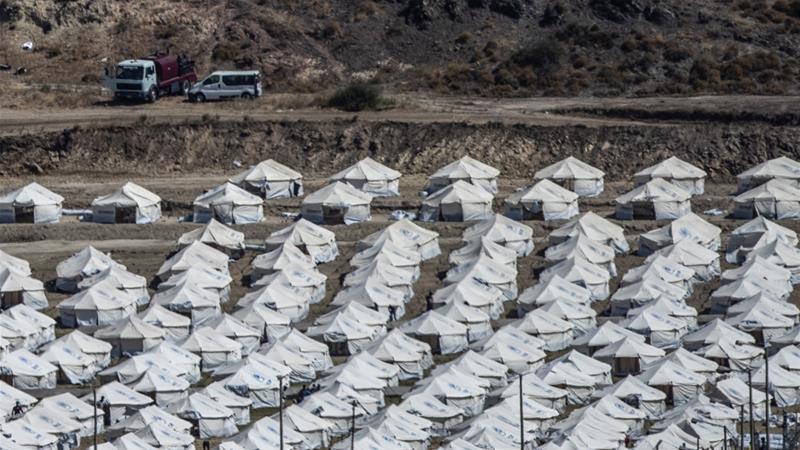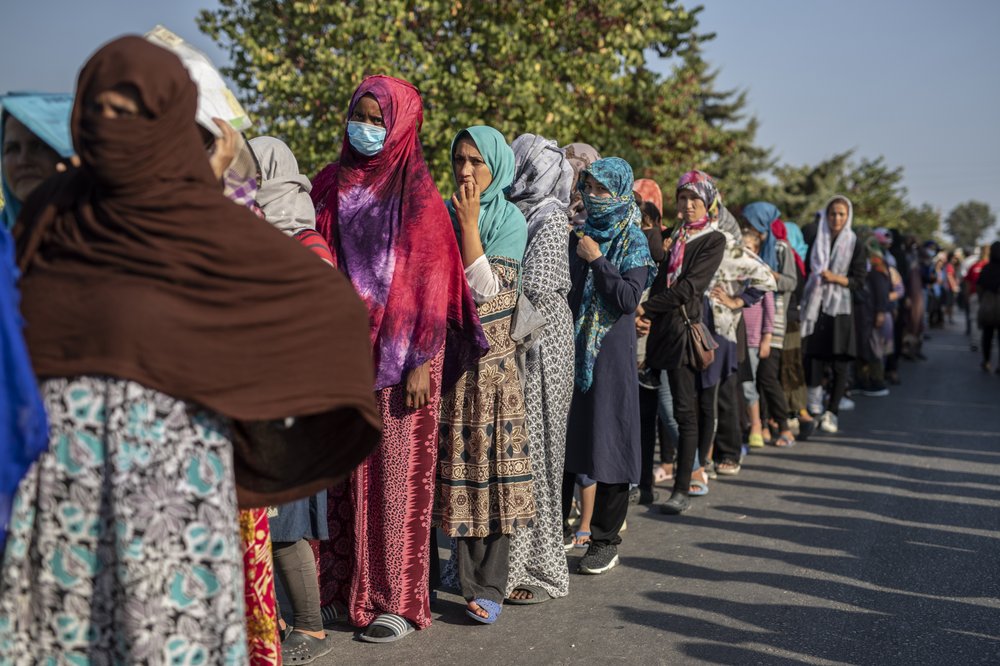In an exclusive interview with The Guardian, Greece’s Civil Protection Minister, Michalis Chrysochoidis, has vowed that the island of Lesvos will be emptied of refugees by next Easter.
Following the devastating fires that destroyed the notoriously overcrowded Moria facility last week, Greece’s top public order official added plans would be accelerated to decongest the outpost.
“They will all leave,” Mr Chrysochoidis told The Guardian.
“Of the roughly 12,000 refugees here currently, I foresee 6,000 being transferred to the mainland by Christmas and the rest by Easter. The people of this island have gone through a lot. They’ve been very patient.”

READ MORE: Moria ‘completely destroyed’ as fire tears through migrant camp.
About 70 percent of asylum seekers on Lesvos were Afghans who would be awarded refugee status and given travel papers, he said. Recognised refugees can move to another EU member state for up to three months using the documents.
Chrysochoidis, who flew into Lesvos to help oversee relief efforts, also welcomed reports that Germany was prepared to take in as many as 1,500 people from Moria.
The German coalition government on Tuesday agreed to take in a total of 1,553 people from 408 families whose protected status has been confirmed by Greek authorities, Angela Merkel’s spokesperson said.
“It’s very generous, very brave,” Chrysochoidis said of the goodwill gesture.

“All over Europe, countries have their own internal political problems around this issue but I also think they [EU states] can see we are protecting the bloc’s borders, we have greatly minimised flows.”
Merkel insisted on Monday any transfer of migrants to Germany would need to go hand-in-hand with a broader European initiative, emphasising her support for Greek plans for a new reception centre on Lesbos.
READ MORE: Greece to build permanent migrant centre on Lesvos to replace Moria.
The Greek government has pledged to build a new structure on the island that will be co-managed by EU agencies, but says construction of the camp in a place that has yet to be decided will require at least six months.

Chrysochoidis said movement into this camp was “non-negotiable.”
“There are groups of Afghans and I am afraid even some human rights organisations who are encouraging thousands of people not to go in,” said Chrysochoidis, who is seen as the face of the centre-right government’s tough public order policies.
“It’s non-negotiable. They will leave the island but they have to go through this new facility and get the requisite legal documents first.”
Greek police charged four Afghan migrants with arson on Wednesday for their alleged involvement in the fires which destroyed most of the camp.
READ MORE: Six migrants arrested over deadly Moria camp blaze.

Efforts will be launched in the coming days to clear the charred remains of what had once been Europe’s largest refugee camp.
Designed to host no more than 3,000, Moria accommodated almost 10 times that number at its height and was regularly condemned by aid groups for its deplorable conditions.
“It was a camp of shame,” the politician admitted, denying that the government was also forcibly pushing back other refugees who were trying to get to Greece.
“Now it belongs to history. It will be cleared up and replaced by olive groves.”

